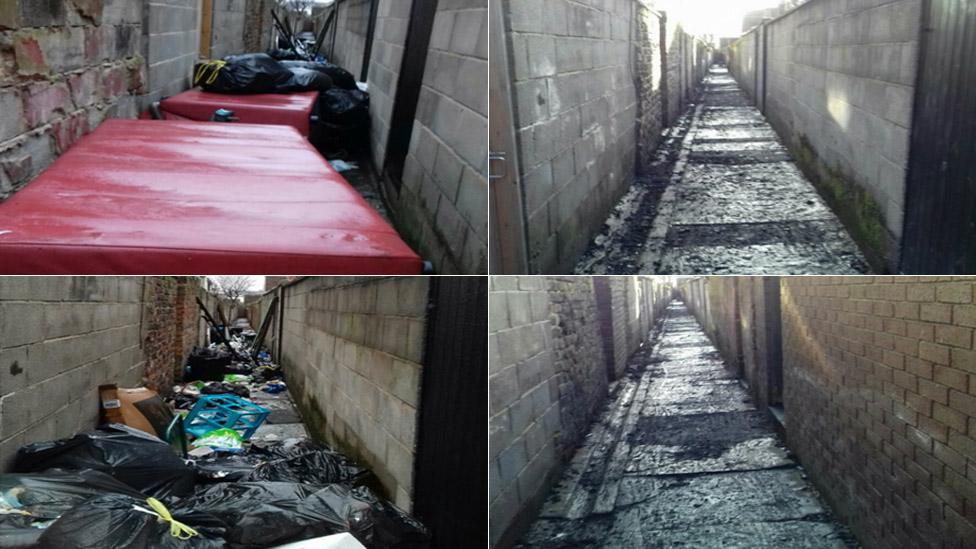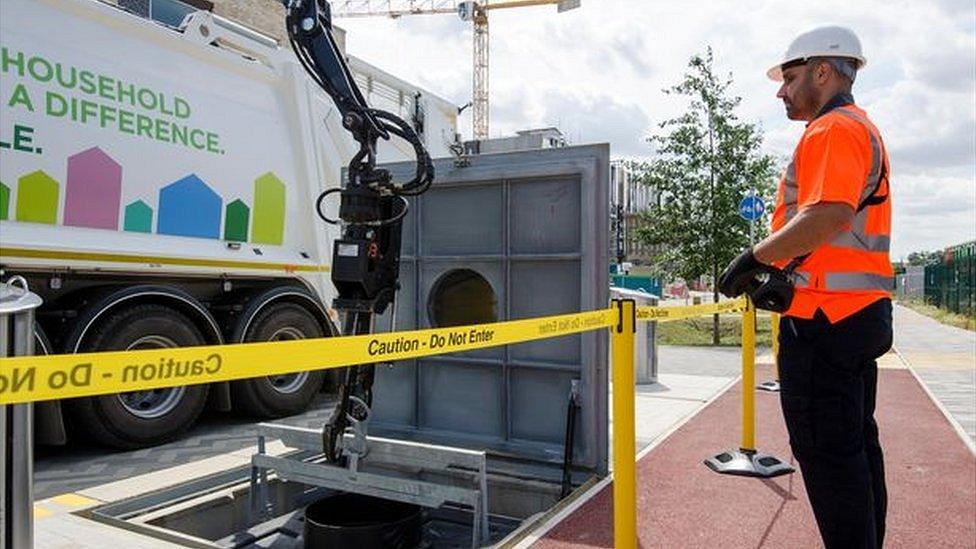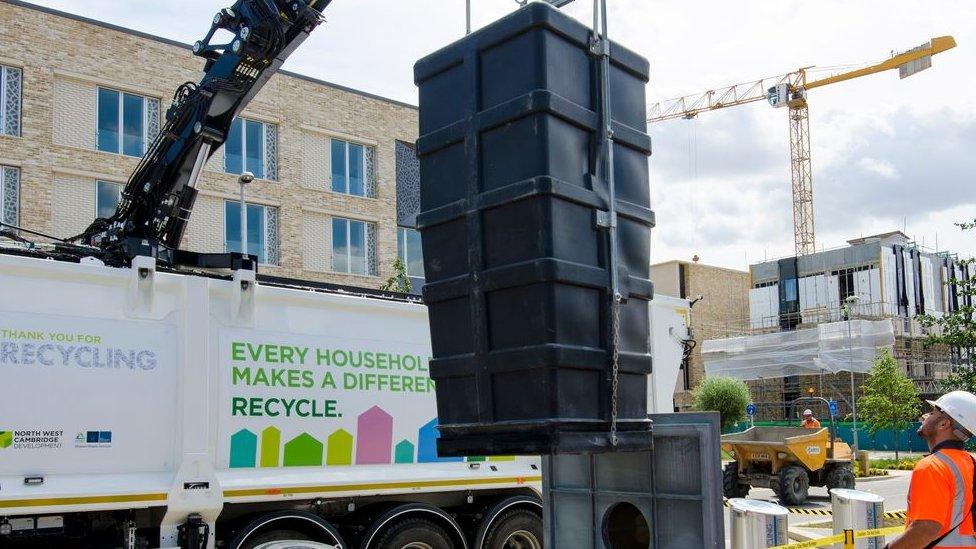Liverpool to trial underground bins to tackle litter and rat problems
- Published

Rubbish is being dumped in narrow alleyways and attracting vermin, the council says
Communal underground bins are being considered to tackle "critical" litter and rat problems in Liverpool.
The city council is to spend £6m repairing and cleaning "crumbling" alleys which are filled with rubbish as they are too narrow for wheelie bins.
About 22,000 houses with 4ft (1.2m) alleyways could benefit from a system of slender kerbside bins "feeding" large underground containers.
The council said it would also take tougher action against littering.
A six-month trial is starting in the city's County ward in streets with 4ft alleyways, using the type of large waste bins usually found outside commercial premises.

Liverpool City Council may adopt an underground bin scheme similar to one already in operation in Cambridge
If successful, underground bins will then be rolled out at the end of next year or in 2020, possibly in other areas of the city such as Anfield, Picton, Old Swan and Tuebrook.
Mike Brown, chief operator of the council's Liverpool Streetscene, said refuse collection in properties built more than 100 years ago with narrow alleyways was a "huge challenge".
According to the Local Democracy Reporter Service, he said waste and vermin problems were being exacerbated by some residents throwing rubbish "bags over the top" of their walls throughout the week rather than when refuse is collected.
Mr Brown said waste from underground bins - which are used in other parts of Europe - would be collected monthly, making it a cheaper and more efficient way to store and collect.

An underground system has been used in Eddington, Cambridge for more than a year
County ward councillor Roy Gladden said the new system would be "revolutionary" because it would eliminate the need for rubbish bags to be left in the street.
He said repairing the "crumbling" alleyways which have physically collapsed and have rats nests underneath the slabs would also help solve the problem.
The council hopes the scheme will also improve recycling rates.
Cambridge City Council has been using an underground system for more than a year and said it was "working well".
Underground bins replaced 9,000 wheelie bins in Eddington which it said had produced a "high level of clean recycling".